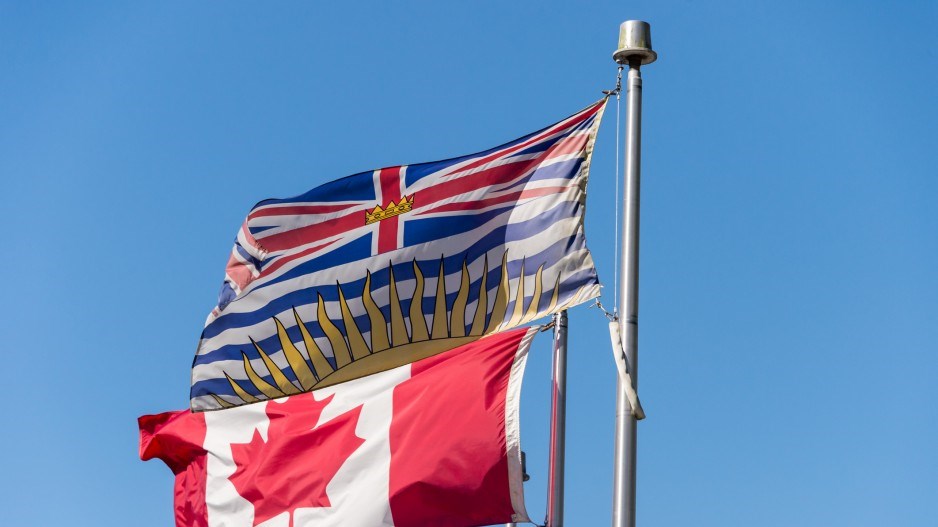In recent days, the Vancouver downtown came alive again.
It had much to do with the presence of 15,000 people coursing through the streets and into the convention centre for LNG2023, the world’s largest annual conference on liquefied natural gas.
Conspicuously missing from this presence, certainly noted for their absence, though, were the most relevant Canadian political officials.
Our prime minister, to be fair, was in Lithuania for the NATO conference.
That being said, he could have sent a recorded message or speechified remotely. He does that all the time, just not this time.
He could have sent the deputy prime minister, Chrystia Freeland, because she serves as a strong surrogate, but she didn’t show.
He also could have directed his natural resources minister, Jonathan Wilkinson, to attend. After all, Wilkinson represents a North Shore riding a mere SeaBus trip or ride across the Lions Gate Bridge to the conference centre.
But, bizarrely, no.
Instead, the international throng there to examine the global energy sector got to hear from Canada’s – yes, you will read this right – tourism minister, Randy Boissonnault.
Nice man, very bright, and if I digress to sarcasm, I suppose the government thought nothing could be more on-point for an energy conference than to talk about the energy that comes with filling our hotels and restaurants.
Eventually the conference got to hear not from the minister, but the chair of the Commons committee on natural resources, John Aldag, MP for Cloverdale-Langley City.
On a more proximate political front, our premier delivered a video for the conference and sent Josie Osborne, the wondrously titled Energy, Mines and Low Carbon Innovation minister, a title that wins the signal virtualling crown and probably was a conference favourite.
Not exactly the Welcome Wagon.
On the other hand, Alberta Premier Danielle Smith had no trouble hopping on a plane, showing up and speaking – as if to say that if they wanted the right welcoming vibe from the conference, they ought to have gathered in Calgary.
You can disagree with Smith on certain fronts, but she knows where the bread is buttered. Our team seems to not have her appetite.
You can believe in climate change, want the world to reduce its dependence on fossil fuels, yet realize you can’t leave energy in the ground quite yet.
But it can be embarrassing to live in a political environment in which these obvious dilemmas and conflicts on these issues aren’t acknowledged and aired.
Our team seems ambivalent and in denial.
Officials abroad appear to have no such trouble; they’re mature in recognizing the significance of natural gas as an energy source, particularly as a transition to cleaner fuels to mitigate environmental impact.
The LNG2023 conference was a great gauge of that balancing act. One session talked about the essential nature of high pedigree natural gas as a great equalizer for emerging economies as they move away from coal and into renewables without cutting their paths to prosperity.
Another looked at how project owners serving European markets have to invest more aggressively in emission reduction measures if the LNG sector is to extend into the second half of this century.
In other words, the gathering wasn’t there to be blithe about geopolitics, naïve about the environment or indifferent about North-South inequity.
Its discussions were conscious efforts at being real and not ideal, a working conference designed to measure and make progress on what the sector calls the energy “trilemma” of security, sustainability and affordability.
These are the same conversations politicians ought to be having with the public. Hosting this event is a privilege, and its attendance and participation also ought to be a priority if your job is to publicly disburse the massive energy revenue you take in and steward the standards by which these giants operate.
The non-appearance of national and provincial leaders sent a signal of indifference or worse, that somehow these public conversations do not need their involvement.
Canada already bears an international reputation as a hoarder of LNG and a ditherer on projects, but the conference heard that there is a window of opportunity to deliver a source produced with strong environmental and social standards.
For heaven’s sake, there’s a $40 billion LNG project in Kitimat, B.C., the largest in our country’s history, onstream in a couple of years.
Every time someone tries to measure LNG’s economic impact, it’s necessary to scratch out the earlier number and add tens of billions.
Why wouldn’t this conference, which attracts the world’s leading executives, be Canada’s moment to stand with the sector? I’m just baffled.
Kirk LaPointe is publisher and executive editor of Business in Vancouver and vice-president, editorial, of Glacier Media.





